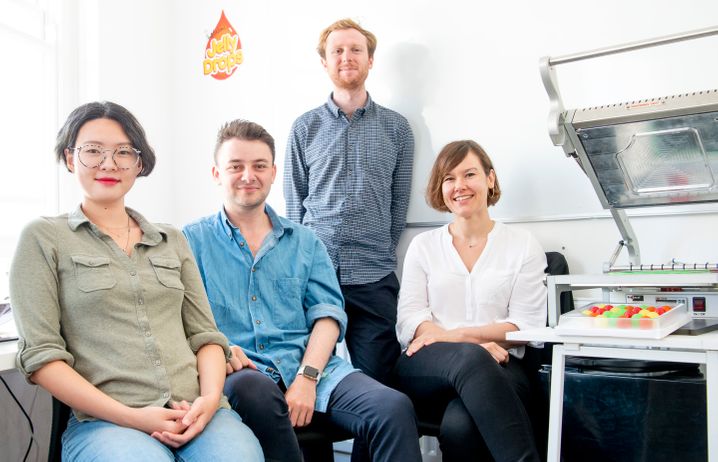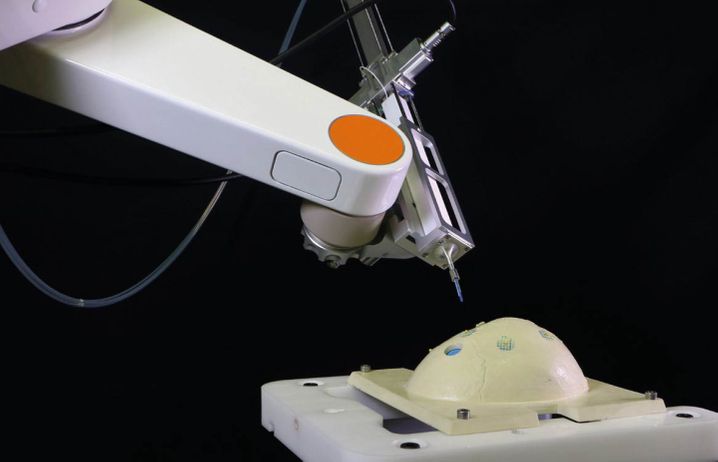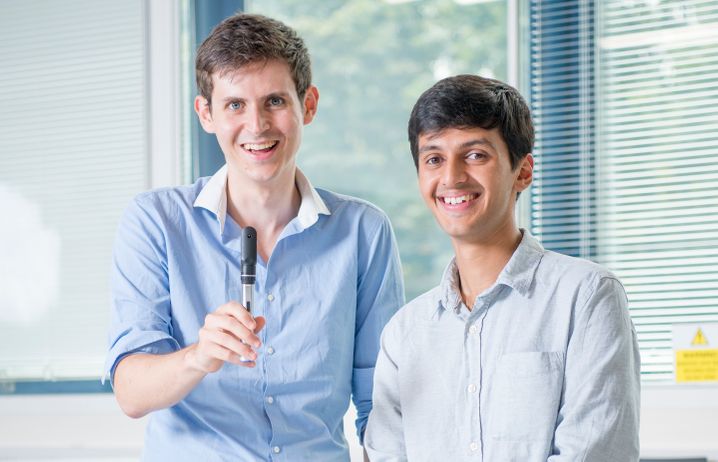Healthy society case studies

Jelly Drops
Motivated by his grandmother’s experience of dehydration, Lewis Hornby created Jelly Drops – hydrating treats that enable people with dementia to hydrate independently. After he teamed up with Claudia Arnold and Nick Hooton, fellow students on the Innovation Design Engineering programme, the venture has gone on to win the Pitch@Palace People’s Choice Award and the Imagine IF! Global Accelerator. They were also the first team to partner with Alzheimer’s Society through their Innovation Accelerator and have over 50,000 people signed up to their waiting list.

Surgical robotics
Beginning with a chance conversation over dinner about wood-boring wasps and ending with a four-year project to develop a suite of robotic tools for drug delivery in neurosurgery, the Enhanced Delivery Ecosystem for Neurosurgery (EDEN2020) successfully performed the world’s first live flexible needle insertion in July 2019. EDEN2020 is an €8.3 million project funded by the EU’s Horizon 2020 programme that aims to use the latest surgical robotic technologies to meet the demand for better and less invasive surgical techniques.

Diagnosing sight loss
According to the WHO, about 80% of global blindness is avoidable if diagnosed early enough. Student startup VUI Diagnostics is aiming to dramatically speed up the diagnosis of diseases that lead to sight loss with their new retinal imaging tool. They say their device can image ten times more of the eye than standard ophthalmoscopes, allowing for greater accuracy and considerably lower cost. With 90% of the world’s blind people living in the developing world, they hope to bring retinal imaging to isolated regions that previously did not have access to equivalent technology.
Easy cell analysis
Imperial has developed a new device that makes it easy to extract individual proteins, DNA and RNA from cells for research and diagnostic purposes. The tiny syringe-like device, known as a nanotweezer, can be used alongside a microscope to identify cells with interesting features, such as those infected by a virus, and extract molecules directly from the live cells without laborious extraction processes or affecting viability. The technology, developed by Professor Joshua Edel and Dr Alex Ivanov with colleagues in the Department of Chemistry, is currently available for licensing.
Surgery tech
Imperial researchers have developed a novel surgical device that enables large anatomical areas to be clamped during minimally invasive surgery. Laparoscopic (keyhole) surgery often requires folds of tissue to be clamped to stop blood or other fluids flowing and current surgical clips are well designed for tubular structures but not large areas of tissue. Currently in prototype, the Imperial clip and applicator developed by Dr Mikael Sodergren and colleagues features an elongated, stronger clip specially designed to clamp larger areas, improving patient outcomes and surgical performance.
Mental health med tech
Academic and student teams from Imperial and seven other London institutions launched technology ventures aimed at improving mental health and wellbeing with support from an Imperial-led accelerator. Researchers behind technologies such as Affect.AI, a machine learning tool that tracks voice changes to monitor depression, BrainBot, a virtual personal trainer for the mind, and Happy Hub, a suite of stress management tools to improve workplace productivity, received funding and training to commercialise their ideas from the MedTech SuperConnector programme.